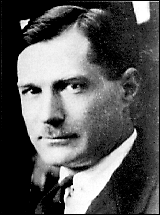
In 1987 a paper by the expatriate Russian musicologist Mikhail Goldstein about a hitherto unsuspected relationship between Shostakovich and the anti-communist writer Yevgeny Zamyatin appeared among a dozen delivered to a conference[1] held by the Slavic Languages Department of the University of Lausanne. Summarising this paper in DSCH XXI, I noted that several of Goldstein's controversial claims - contradicting the account given in Testimony - were factually suspect. One such - that the writer Yevgeny Zamyatin influenced Shostakovich in the conception of his ill-fated ballet The Bolt - can now be shown to be false.
New material on Zamyatin continues to be published and among documents recently made available in English by Gary Kern[2] is testimony which directly contradicts Goldstein's assertions on this point. In a review of new Russian theatre written just after going into exile in December 1931, Zamyatin includes, in an attack on various works supposedly displaying the 'publicistic... treatment of industrialisation, the collective farms, and so on', the following remarks about The Bolt:
'On the stage, of course, we were shown a factory, there was a dance of the workmen at the furnaces, a dance of the "vrediteli" [wreckers], a dance of the "kulaks", and a sort of dance "apotheosis" - dances of different parts of the Red Army, including Red Cavalrymen who galloped wildly... while sitting on chairs. The result was by no means an apotheosis (since) the first night of the ballet happened to be its last.'[3]
There is no question of Zamyatin's comments being taken out of context; he meant them and he meant them critically. Thus, either he had fallen out with Shostakovich (whose name he conspicuously fails to mention), or Goldstein's allegations concerning the writer's guiding role in the creation of The Bolt are false.
Solomon Volkov's very different version of their relationship is clearly more credible in this light. By the same token, Goldstein's account is seriously compromised. It is, for example, hard to imagine how Zamyatin and Shostakovich could have sustained a long correspondence after what would necessarily have been a serious break in their relationship during summer 1931. Unless these letters are to be found somewhere - and, if not, how did Goldstein know about them? - the only possible conclusion is that no such break occurred because no such close relationship existed.
Is Goldstein's essay, then, a hoax? Apart from the reservations noted in DSCH XXI, there are other reasons to suspect that this is so. For example, Goldstein's claim that Shostakovich had read 'several' of Zamyatin's books by the time of their alleged first meeting in 1924 is unsupported by the Glivenko letters, the evidence of which suggests that the composer's interest in contemporary literature dates at the earliest from 1925.
Similarly, Goldstein's allegation that Shostakovich was naively assertive in defending one of the country's most notorious individualists at the very height of the Cultural Revolution is both an anachronism and in itself essentially implausible. Had he really known Shostakovich in 1931, he would have been aware that such a claim was extremely unlikely to be true.
Was it possible for Goldstein to have faked these 'recollections'? Very easily. Most of the statements he attributes to Zamyatin are to be found, often verbatim, in the author's novel We or in his essays of the 1920s. As for the 'details' of Zamyatin's alleged role as éminence grise to Shostakovich between 1926 and 1931, for 'Zamyatin' read 'Sollertinsky'.
Why, though, would Goldstein have faked such a close relationship between Shostakovich and Zamyatin? Politically, an obvious motive would have been to present the composer as having been in close creative contact with a declared anti-Communist throughout the only period of his life in which his political affiliations are otherwise highly debatable.
Another motive would have been pure mischief. Solomon Volkov (letter to the present writer) describes Goldstein as a 'good-natured hoaxer' well-known as such in Russian musical circles: 'Once he invented a nonexistent composer, complete with forged symphony, etc.' As for Goldstein's memoirs, published in Russian in Germany in 1970, there is 'nothing of substance about Shostakovich and certainly not about Zamyatin'.
Naturally Volkov has to be considered an interested party in this case since it is chiefly his version of Shostakovich's relationship with Zamyatin which Goldstein's challenges. Yet more than enough independent evidence now exists to support Volkov's claim - indeed I personally have no doubt whatever that he is right and that Goldstein's piece is a hoax.
As for how much Shostakovich knew about Zamyatin's ideas during their collaboration on The Nose, we may safely assume that he was aware of the existence of We and of its contents - and that he was therefore 'collaborating' with a man both the Party and the Proletkult regarded as a 'betrayer of the revolution'.[4] (This renders Goldstein's report of Zamyatin's remarks about the Second Symphony at least provisionally plausible.[5])
Whether or not Shostakovich was one of those who read We in manuscript, we shall have to wait and see. (That he and Zamyatin had specific political interests in common is suggested by recent evidence that much of the novel's satirical detail derives from its author's study of the early Proletkult, in particular the writings of Alexei Gastev and Alexander Bogdanov.[6])
Shostakovich's contemporary approval of Ilya Ehrenburg[7] likewise indicates that he was probably well disposed to Zamyatin's critical views of Soviet society since Ehrenburg's novels of the period were comparably disenchanted. (As a friend and colleague of Zamyatin, Ehrenburg himself considered We to be 'magnificent'. His own The Grabber, a satire on NEP which includes deprecating remarks about Soviet institutions, was, together with Zamyatin's We and Pilnyak's Mahogany, banned at the beginning of the Cultural Revolution in 1929.)
Despite Goldstein's spoofing, then, the closeness of the young Shostakovich's thoughts to those of anti-Communists like Zamyatin and Ehrenburg is difficult to gainsay. How consistent he was in entertaining such views is, of course, another matter.